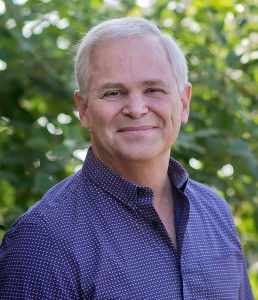
According to my best estimates, Bible reading in America has been on the decline for the last fifty years.
Americans still like the Bible.
According to LifeWay Research, 87% of households own a Bible. The average home has three.
But they don’t have much urgency to read it. More than half of Americans have read little or none of the Bible.
I’m tempted to say, “the Devil,” but acknowledging his role doesn’t really solve the problem.
On a practical level, the problem is leadership.
We need leaders to rise up, pray up, and gang up on the reasons people don’t read the Bible.
More than ever, what our country needs is a Bible Reading Revolution.
Why People DON’T Read the Bible
According to Barna Research, the top four reasons people don’t read the Bible are:
- Lack of time.
- The language is difficult.
- They don’t get excited to read it.
- They don’t understand the background or history.
These are solvable problems!
Men and women regularly feel crazy busy. Then they meet someone, and all of a sudden they find time to be with that person. Why? Because they’re in love.
How do we help people develop a love for the Bible? We lower the pain-level of the other three problems.
- If the language of the Bible is difficult, let’s introduce them to easier versions. The Message is an easy-to-digest paraphrase. The NLT is written on a third grade reading level. The NIrV is also written at an elementary level. For non-readers, there are a half dozen decent audio Bibles out there.
- If lack of excitement is a problem, let’s make the Bible exciting for them. Infection is the best way to spread any disease.
- If they don’t understand the background and history, let’s give it to them!
How to Help People Read the Bible
1. Get on a campaign.
During a normal sermon series, the pastor preaches on a passage or topic and the listeners read something else in their personal lives. If they’re in a small group or Sunday school class, they learn something different there. Learning is fragmented.
A Church Campaign combines preaching, reading and group study. It’s the magnifying effect of focus – the sun can warm you, but a laser can cut through steel.
When an entire church studies the same subject together, everyone gets on the same page. Momentum is multiplied. Talk is targeted. As we share what we’re experiencing, the learning goes deeper.
2. Teach people about the Bible.
For pastors and veteran church leaders, it’s easy to assume that everyone knows the basics of the Bible: who wrote it, where it came from,what it’s about, etc. Barna’s study tells us that one of the top reasons people don’t read it is because they don’t know its background.
Elementary age students are taught that the first thing they do with a book is look through its table of contents. Getting the big picture is like formatting your mental disc for further learning.
Preachers can get so caught up in teaching the Bible that we forget to introduce the Bible. What if we spent one campaign season introducing the Bible basics?
3. Teach people to study the Bible.
From time to time I meet people who read the Bible through once, and then stop. No one taught them to study, so they didn’t know how to go any further.
What if we spent some time coaching on Bible study basics?
4. Give people a chance to spur each other on.
What drove the Bible Reading Revolution of the Wesleys’ day was the power of a small group. John and Charles rounded people up and put them in circles. Those circles sparked flames that lit England on fire.
I’m never more excited about the Bible than when I’m hearing from a friend what they have been learning from the Bible.
I believe that for Bible reading to become a permanent habit, it has to be coupled with the heat and contagion of a group that meets together – in a home, a restaurant, or a Sunday school class.
5. Join forces with other churches.
The day has passed when a church can wall itself off from those outside its denomination. Communication is too fast and frequent to think that my church members aren’t talking to your church members.
If a small group can spark a flame, a whole church ought to be able to build a brushfire.
And if churches partner together in getting on a Bible Reading Campaign, well, that might just make for a wildfire.
What’s Next?
 Take a look at the Bible Questions Campaign Kit and ask yourself two questions:
Take a look at the Bible Questions Campaign Kit and ask yourself two questions:
- Would the people in my church grow spiritually if we did a series about the Bible?
- When can I work this into the preaching calendar? (Late September and late January are the best times to start a church campaign.)
Further Reading:
- How to Get Everyone on the Same Page in your Church
- The Bible Questions Campaign Kit
- The Bible Questions Book
 Hal Seed is the founding and Lead Pastor of New Song Community Church in Oceanside, CA. He mentors pastors who want to lead healthy, growing churches with resources at www.pastormentor.com.
Hal Seed is the founding and Lead Pastor of New Song Community Church in Oceanside, CA. He mentors pastors who want to lead healthy, growing churches with resources at www.pastormentor.com.
Start Here to learn more about the resources available for you at PastorMentor.
